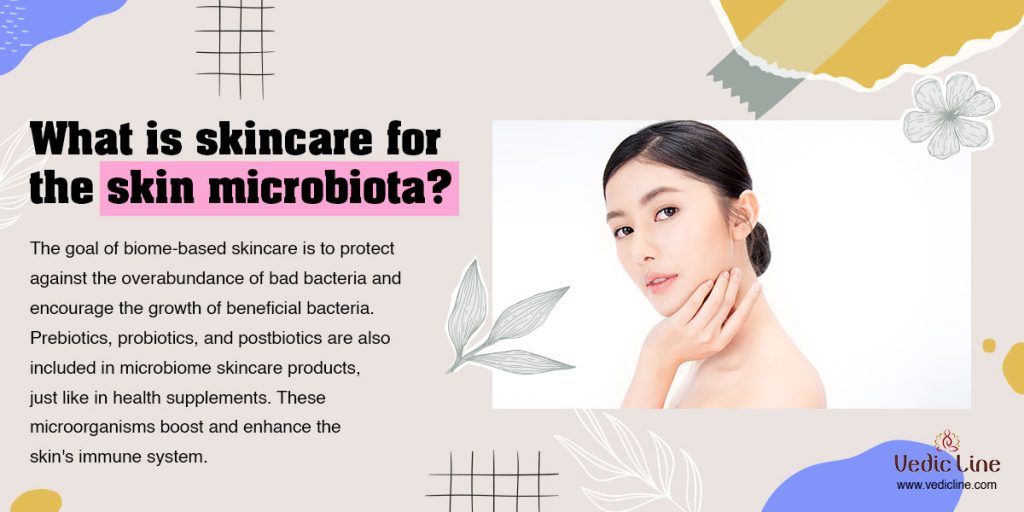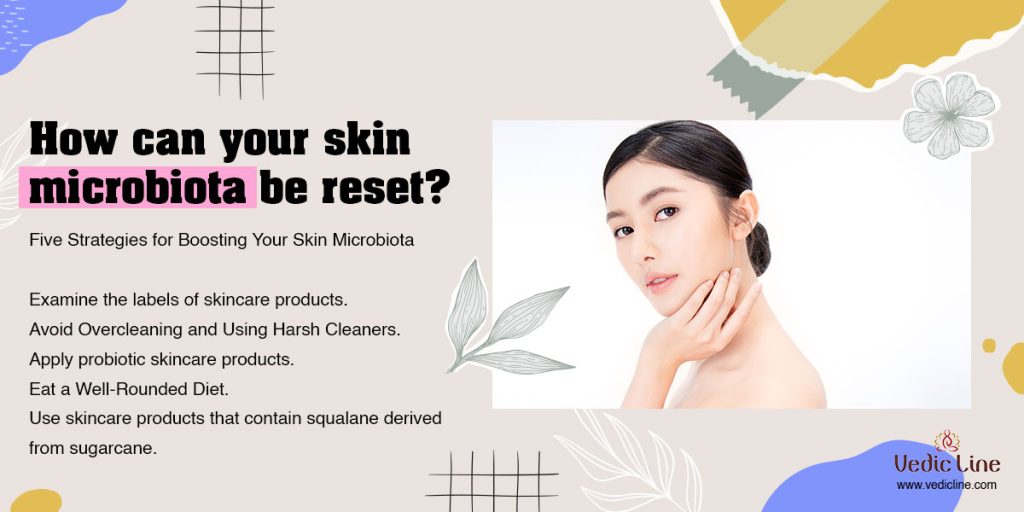The human skin is not just a protective barrier; it’s a complex ecosystem teeming with microorganisms, collectively known as the skin microbiome. This diverse community of bacteria, fungi, viruses, and mites is crucial in maintaining skin health, protecting against pathogens, and modulating immune responses. However, an imbalance in this delicate microbiome, often due to external factors like pollution, harsh skincare products, or antibiotics, can lead to various skin issues, including acne, eczema, and rosacea that’s why we should look up for probiotic skincare.
Understanding the Skin’s Microbiome
The skin’s microbiome is composed of bacteria, fungi, viruses, and other microorganisms that live on the skin’s surface. These microorganisms play a vital role in protecting the skin from harmful pathogens, regulating inflammation, and maintaining the skin’s barrier function. A healthy microbiome is diverse and balanced, contributing to the overall health and resilience of the skin.
However, factors such as pollution, harsh skincare products, antibiotics, and lifestyle choices can disrupt this balance, leading to issues such as acne, eczema, rosacea, and premature aging. Probiotic skincare aims to restore and maintain this balance, promoting healthy skin from the inside out.
What Are Probiotics?
Probiotics are live microorganisms that provide health benefits when applied or ingested in adequate amounts. While probiotics are commonly associated with gut health, recent research has shown that they can also benefit the skin. Topical probiotics can help replenish and support the skin’s natural microbiome, enhancing its protective functions and improving overall skin health.

Benefits of Probiotic Skincare
Restores Balance: Probiotic skincare helps restore the natural balance of the skin’s microbiome, reducing the prevalence of harmful bacteria and supporting beneficial ones. This balance is essential for healthy, resilient skin.
Reduces Inflammation: Probiotics can help calm and soothe irritated skin by reducing inflammation. This is particularly beneficial for individuals with conditions such as acne, rosacea, or eczema.
Enhances Barrier Function: A healthy microbiome supports the skin’s barrier function, preventing moisture loss and protecting against environmental aggressors. Probiotic skincare can strengthen this barrier, keeping the skin hydrated and resilient.
Fights Acne: Probiotics can help combat acne by inhibiting the growth of acne-causing bacteria and reducing inflammation. They also promote a balanced microbiome, which is less likely to develop acne.
Anti-Aging Benefits: Probiotics can help reduce the appearance of fine lines and wrinkles by promoting a healthy skin barrier and reducing inflammation. A balanced microbiome also supports the skin’s natural repair processes, leading to a more youthful complexion.
Improves Skin Texture: Regular use of probiotic skincare can improve skin texture and tone, resulting in smoother, more even skin.
How to Incorporate Probiotic Skincare into Your Routine
Cleanser: Start with a gentle, probiotic-infused cleanser to remove dirt, oil, and makeup without disrupting the skin’s natural balance. Look for products with ingredients like lactobacillus or bifidobacterium.
Toner: Follow up with a toner that contains probiotics to further balance the skin’s pH and prepare it for the next steps in your routine.
Serum: Apply a probiotic serum to deliver concentrated benefits directly to the skin. Serums are designed to penetrate deeper into the skin, making them an effective way to target specific concerns.
Moisturizer: Use a moisturizer with probiotics to lock in hydration and support the skin’s barrier function. This step is crucial for maintaining a healthy, balanced microbiome.
Masks and Treatments: Incorporate probiotic masks or treatments into your routine 1-2 times a week for an extra boost of beneficial bacteria. These products can provide intensive hydration and repair, enhancing the overall health of your skin.
Choosing the Right Probiotic Skincare Products
When selecting probiotic skincare products, it’s important to consider the following factors:
Ingredients: Look for products that contain live probiotics or prebiotics, which serve as food for beneficial bacteria. Common probiotics in skincare include lactobacillus, bifidobacterium, and bacillus ferment.
Formulation: Ensure the products are formulated to preserve the viability of probiotics. This often means they should be kept in airtight, opaque containers to protect the bacteria from light and air.
Complementary Ingredients: Choose products with complementary ingredients such as hyaluronic acid, ceramides, and antioxidants. These ingredients work synergistically with probiotics to enhance skin health.
Skin Type: Consider your skin type and specific concerns when choosing probiotic skincare products. For example, those with oily or acne-prone skin may benefit from lightweight, non-comedogenic formulations, while those with dry skin may prefer richer, more hydrating products.

DIY Probiotic Skincare Recipes
For those who prefer a more hands-on approach, you can create simple probiotic skincare treatments at home using natural ingredients:
Probiotic Yogurt Mask: Mix plain, unsweetened yogurt with a teaspoon of honey and apply it to your face. Put it on for 15-20 minutes and then rinse it off with warm water. Natural probiotics in yogurt can help balance the microbiome of the skin.
Kefir Toner: Dilute kefir (a fermented milk drink) with equal parts water and use it as a toner. Apply it to your face with a cotton pad and leave it on for a few minutes before rinsing off.
Fermented Rice Water Rinse: Soak rice in water for 24-48 hours to ferment, then strain the liquid and use it as a rinse after cleansing your face. Fermented rice water is rich in probiotics and beneficial enzymes.
Closing Thoughts
Probiotic skincare offers a promising approach to maintaining a healthy, balanced skin microbiome. By incorporating probiotic products into your daily routine, you can support your skin’s natural defenses, reduce inflammation, and achieve a radiant, youthful complexion. Whether you choose ready-made products or DIY treatments, the key is consistency and choosing formulations that suit your skin type and concerns. Embrace the power of probiotics and unlock the secret to healthier, more resilient skin.



